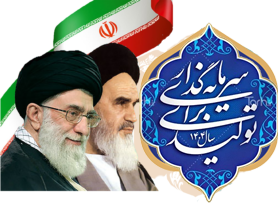The meeting of the National Veterinary Education Committee was held in the organization's meeting hall, attended by Dr. Abbas Ali Motlabi, head of the Veterinary System Organization of the Islamic Republic of Iran, and a group of officials and experts in the field of education.

According to the Public Relations Department of the Iranian Veterinary System Organization, at the beginning of this meeting, Dr. Mehran Mehdipour, the organization's deputy director for education and membership affairs, referred to the positive developments of the organization's new management period and said: "One of the best periods that the Veterinary System Organization has faced has occurred since the beginning of Dr. Motlabi's activities. His presence, who is considered a veteran of the country's veterinary medicine, and his complete coordination with the government body, promises the fulfillment of many of the demands of the veterinary family; especially in the field of education, which was also the focus of discussion in this meeting."

Continuing the meeting, Dr. Abbas Ali Motlabi, head of the Veterinary System Organization, pointed out the key role of education in the professional advancement of veterinarians and stated: "Retraining and retraining of veterinary personnel is one of the legal duties of the system organization. Graduates of this field must go through a professional qualification process to enter the job market, and a university degree alone is not enough to practice."
He added: "We are obliged to conduct accurate and targeted qualification based on job position and type of activity. The level of practical skills and knowledge of individuals should be the basis for ranking and issuing professional activity licenses. Therefore, it is necessary to improve the capabilities of human resources by designing a suitable educational structure."

Dr. Motlabi also pointed out the high capacity of the country's veterinary human resources and said: "Currently, more than 50,000 people are members of the Veterinary System Organization, of which about 26,000 are veterinarians. More than a thousand graduates from the country's 25 veterinary schools are added to this community annually. This statistic indicates the urgent need to design a comprehensive, continuous and practical education system."
He continued: "We must work with the agencies in charge of education, including the Ministry of Science and the Ministry of Agricultural Jihad, to design a national veterinary education document to develop a codified, efficient, and needs-based model for specialized education and retraining."

The head of the Veterinary System Organization also pointed to the capacities available in the Ministry of Agricultural Jihad and proposed concluding a memorandum of understanding with the Agricultural Education and Extension Institute, adding: "The facilities of this institute can be a very suitable platform for implementing applied training. By preparing a comprehensive training package, we can design and implement the required training in the form of specialized platforms and workshops for veterinarians and other professional categories."

In conclusion, he emphasized the need to continue the meetings of the National Education Committee and said: "We need a serious reengineering of the educational structure. Forming specialized subcommittees, developing executive strategies, utilizing the capacity of universities and the private sector, and strengthening inter-sectoral cooperation are among the steps that should be included on the committee's agenda to achieve this."


